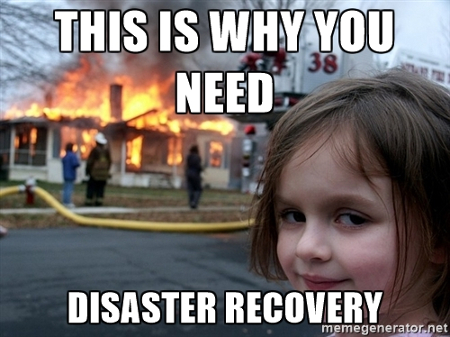Reach Us Today!
TaylorWorks, Inc. Blog
TaylorWorks, Inc. has been serving the Longwood area since 1999, providing IT Support such as technical helpdesk support, computer support, and consulting to small and medium-sized businesses.
Data backup is important. A good technician won’t even touch a computer unless they know the data is redundantly stored somewhere else. A solid backup is a critical part of any network. That said, there is backup… and then there is backup. Read on to see what I mean.
0 Comments
In uncertain times, one of the most important things for any business to do is to stay the course—albeit in an adjusted fashion. To help, we’ve put together a few key practices to work positively to achieve this end.
While managed services have made more sense for businesses to utilize for some time now, current events have made it even more apparent that this model of IT support is the only feasible option for businesses going forward. However, it has also never been clearer that you need to be selective in who you choose to provide this support.
Much is made about business continuity planning, but there is a knowledge deficit about what exactly business continuity planning entails. Today, we will talk about the basics of the business continuity plan (BCP) and how today’s most successful businesses go about reading their contingency plans.
Everyone from Wall Street to Main Street is feeling the effects of the COVID-19 outbreak. As a result, many businesses have had to enact their disaster recovery strategy to ensure that their business remains on solid footing during this dark time.
Each March 31st, we like to observe World Backup Day, where we educate people about the benefits of having a comprehensive backup plan in place. This year, with tens of thousands of people being affected by Coronavirus, business has ground to a halt in large portions of the world. Today, we are going to look at the business continuity strategy and how, in times like these, you’ll be glad you have your data backed up.
A data loss incident might seem like an abstract concept, but it’s really quite simple when you boil it down to one cold, hard fact: your business suffers from downtime and it can no longer function the way it’s supposed to. When facing down a data disaster, there are a lot of ugly truths that your organization needs to be prepared to address. Here are three of them.
While it would be nice, not all troubles concerning your data are resolved once a disaster has passed - even if you have a strategy in place. There’s still the matter of having the right strategy, and having it configured correctly. Here, we’ve listed a few considerations you should take regarding your backup (preferably before you need it) to make sure you’re properly prepared.
Does your business have a dedicated data backup and disaster recovery system? It’s one of the most critical parts of managing a business, yet some don’t have a plan in the event of the worst. If your organization were to suddenly lose a significant portion of its data, would it be able to continue functioning as needed? With a data backup and disaster recovery solution, you won’t be dealing in the realm of “what if,” and instead focus on “when” you experience a data loss incident.
If we asked you how you back up your data, would you be able to respond with enough knowledge to seriously talk about the topic? Many small organizations are under the impression that data backup is only necessary if your business suffers from a data breach or data loss incident. However, the truth is that if you want to ensure the future of your business, data backup is absolutely crucial.
Thankfully, natural disasters like floods and tornadoes are rare. However, there are plenty of other threats that are much more prominent, and they can strike at any time. This makes it dangerous to be complacent about your company’s business continuity plan, especially since you have no way of predicting these events ahead of time. This forces you to have the mindset of “If not now, when?”
Data backup is foundational to every business continuity plan. Despite this, many businesses don’t realize that data backup and disaster recovery are two very different solutions. This oversight could leave a company high and dry in the face of a disaster causing data loss.




Whether we like it or not, memes have had a profound effect on how the world’s population views current events and popular culture. In part, this is thanks to the prevalence of the Internet, which has fostered these absurd images and provided them an outlet to flourish. Due to how viral they are, it would be foolish to dismiss them as inconsequential; in fact, when leveraged properly, memes can make a statement about your business and its specific brand.
Businesses are volatile entities that can change drastically at any given moment. All it takes to eliminate data and cause disaster is an unexpected natural disaster, like a flood or fire, or a hardware failure that wipes out mission-critical data. The fact remains that your organization could face significant downtime from data loss, and the future of your business could hang precariously in the mix.
We can’t Wait to Work with You.
Schedule an introductory meeting Today!

1435 W. SR 434 Suite 109
Longwood, Florida 32750




